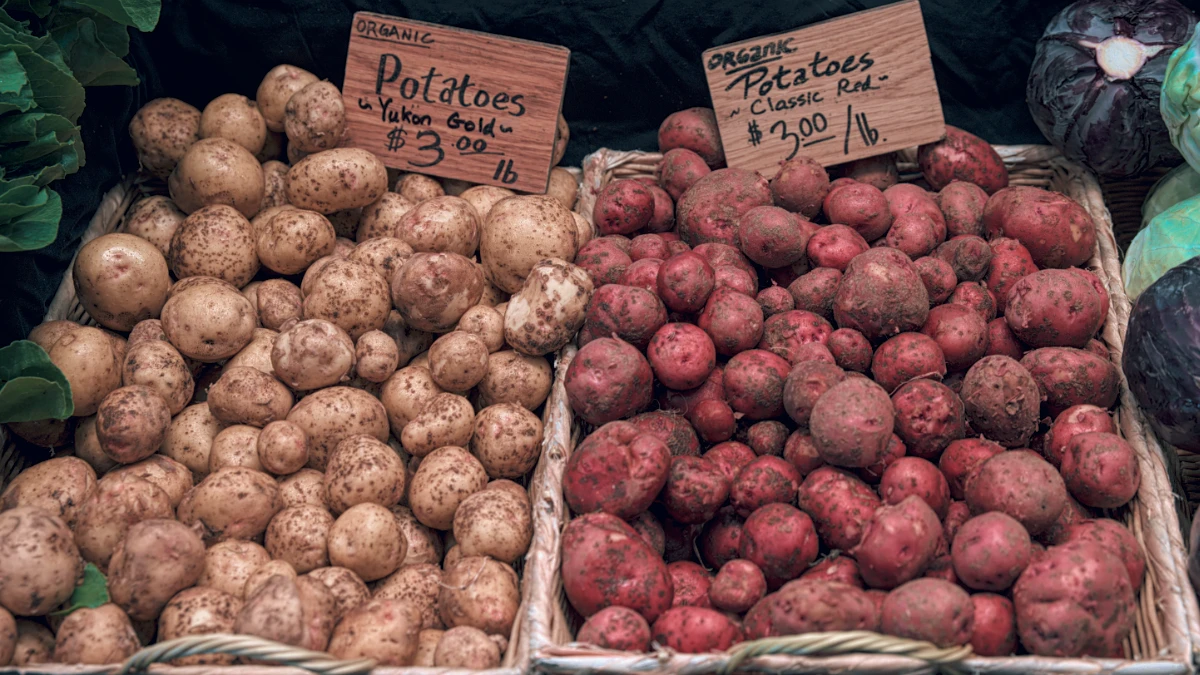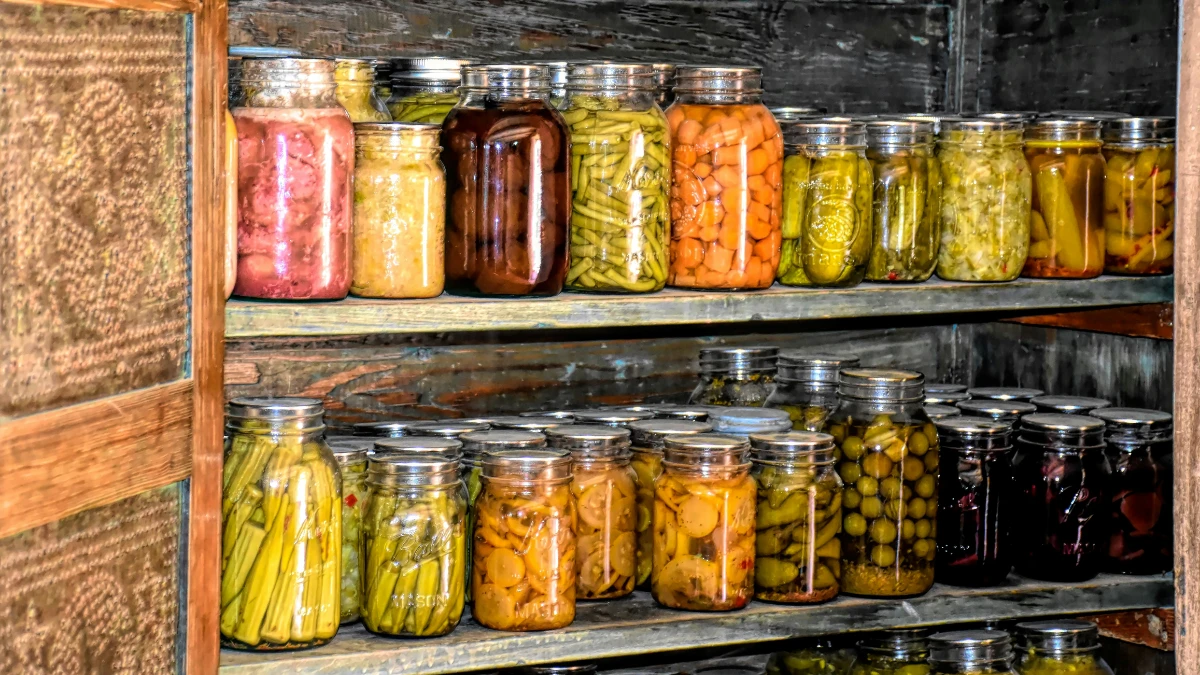When preparing for an emergency, potatoes are among the most nutritious and versatile foods you can store. Packed with essential vitamins, minerals, and calories, they can sustain energy levels and provide critical nutrients. Yukon Gold potatoes, in particular, are well-suited for storage due to their low starch content and rich, satisfying flavor, making them a perfect choice for emergency supplies. Here’s how to store potatoes effectively to ensure they remain fresh and viable during prolonged storage.

Selecting Potatoes for Long-Term Storage
Choosing the right type of potato is essential for maximizing storage time. Yukon Gold potatoes are ideal because of their medium starch level and dense consistency, making them less likely to bruise and sprout compared to other varieties. They also offer a high concentration of Vitamin C, antioxidants, and the calories necessary for survival in times of need. During emergencies, having calorie-dense food that also delivers essential nutrients can make a big difference in sustaining your health and energy.
Optimal Conditions for Storing Potatoes
The key to keeping potatoes fresh is to provide the right environment:
- Temperature: Store potatoes between 42-50°F (5-10°C) in a dark area.
- Humidity: Aim for 85-95% humidity to prevent them from drying out.
- Ventilation: Good airflow helps release gases that can otherwise accelerate spoilage.
Preparing Potatoes for Storage
Proper preparation can extend the shelf life of your potatoes, preventing spoilage and ensuring they remain safe to eat for months.
- Cure the Potatoes
After harvesting or purchasing, let your potatoes cure in a warm, dark area for one to two weeks. This process allows the skin to thicken, creating a natural barrier that prevents rot. - Handle with Care
Bruising damages the skin and introduces bacteria, leading to rot. Handle your potatoes gently and avoid dropping or pressing them too hard. Once stored, keep them in a secure spot where they won’t be disturbed.
Common Storage Methods and Their Benefits
Several storage options work well for long-term potato storage, each with pros and cons depending on your available resources:
- Root Cellars: Traditionally ideal for potato storage, as they maintain a stable, cool environment.
- Cool Basements or Garages: If insulated properly, these spaces can mimic root cellars.
- Outdoor Pits: In colder climates, a buried pit covered with straw or leaves can keep potatoes fresh through the winter.
Essential Tips for Long-Term Potato Storage
Following these additional storage tips will further extend the life of your potatoes.
- Avoid Refrigeration
Although refrigeration seems logical, it can actually harm potatoes by converting starch into sugar, making them more susceptible to spoilage. Instead, keep them in a cool, well-ventilated area where they can remain at room temperature. - Keep Potatoes Dry
Moisture encourages bacterial growth, which accelerates decay. Store potatoes in a dry area, and consider using a dehumidifier in storage spaces prone to dampness. Alternatively, add silica gel packets to reduce moisture without needing electricity. - Promote Ventilation
Potatoes release gases that can speed up spoilage if trapped. Store them in breathable containers like burlap or mesh bags to allow airflow. This ventilation allows the gases to escape, keeping your potatoes fresh longer. - Check Regularly for Spoilage
Periodically inspect your stored potatoes for signs of rot, shriveling, or sprouting. Remove any affected potatoes to prevent them from spoiling the rest of the batch.

Preparing Potatoes for Extended Storage
If you need to extend storage further, consider more intensive methods like curing, pickling, or freezing. While these methods may reduce their versatility for cooking, they can preserve potatoes for up to a year.
- Freezing: Blanch potatoes before freezing to prevent texture loss.
- Pickling: This method adds flavor and ensures longevity, though it does alter the taste profile.
- Dehydrating: Dried potatoes can last years if stored in airtight containers.
Creating an Ideal Storage Area in Your Home
If your home doesn’t naturally reach the ideal storage conditions of 42–50°F, you can make adjustments to bring it closer. In a split-level home, a basement or even an insulated closet in a cool part of the house can serve as a workable potato storage space with a few enhancements.
- Choose the Coolest, Darkest Spot
- While a basement may not get down to the 42–50°F range, it’s still cooler than upstairs. Find the coolest area of your basement, ideally away from any heat sources, and shield it from direct sunlight to maintain stable temperatures.
- Use Insulation or a Root Storage Box
- You can use an insulated storage box or bin to help regulate the temperature. Root storage boxes can keep potatoes in a more stable, cool environment by blocking light and creating slight insulation. Look for breathable storage boxes with ventilated sides, allowing natural air circulation.
- Increase Ventilation
- If the area you choose is enclosed, open it periodically to promote airflow. This will help disperse gases released by potatoes, slowing down the ripening process. If possible, consider a small, low-power fan on a timer to keep air moving and prevent humidity buildup.
- Manage Humidity Levels
- Aim for humidity around 85–95% by placing a damp (not wet) towel or sponge near the storage area and checking it periodically. If the basement is too humid, try a small dehumidifier set to run periodically to prevent excess moisture, which could otherwise encourage rot.
- Consider Adding a Cold-Safe Storage Option in Winter
- During the colder months, take advantage of outdoor temperatures by moving your potato storage to a more naturally cold spot, like a garage or shed, as long as it doesn’t freeze. Make sure the container has some insulation if you’re in a particularly cold climate.
With these adjustments, you can transform your basement or a similar area into a more ideal storage environment, ensuring that your potatoes stay fresh for as long as possible.
Storing potatoes for long-term emergency preparedness requires thoughtful preparation and careful maintenance. With these techniques, you can create a reliable food supply that not only sustains you through emergencies but also provides essential nutrients and energy. Yukon Gold potatoes offer an excellent balance of durability, nutrition, and versatility, making them a wise choice for your emergency storage plan.